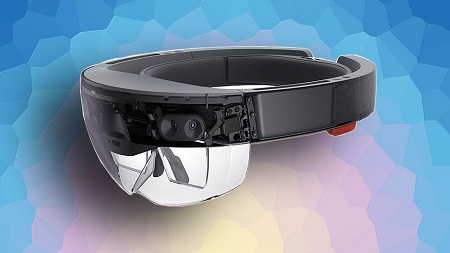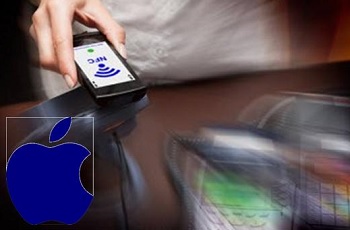Reports are indicating that the iPhone maker is looking to broaden its wearable technology offerings.
A recent report from Bloomberg has pointed to a serious possibility for Apple augmented reality glasses in the future. This is an area where several companies have attempted to make headway in the past, but where none have managed to reach mainstream success.
Primary among those efforts was Google Glass, which is no longer being sold.
Bloomberg cited unnamed sources who are “familiar with the matter” who asked to remain anonymous. That said, they also pointed out that the Apple augmented reality glasses remain in a phase closer to the exploration level. It doesn’t appear as though these devices are anywhere near being ready for the company to sell.
 The concept would be a pair of AR glasses that would wirelessly connect to an iPhone. This would allow a wearer to see the device screen displayed in front of his or her field of view. This may be displayed in augmented reality, in standard format or it could take another direction altogether.
The concept would be a pair of AR glasses that would wirelessly connect to an iPhone. This would allow a wearer to see the device screen displayed in front of his or her field of view. This may be displayed in augmented reality, in standard format or it could take another direction altogether.
Apple augmented reality glasses have been a topic discussed between the company and possible suppliers.
The sources for the report also stated that Apple has placed orders for limited batches of near-eye displays from one of its suppliers. They claimed that the purpose for those displays was for testing. That said, they also underscored the fact that the iPhone maker has not ordered nearly enough parts to suggest that they have any intention to launch mass production at any time soon.
If Apple decides that it would like to move forward with wearable technology glasses, one source says the earliest unveiling would be in 2018.
It’s important to remember that the company is known for testing broad spectrums of technology. While it may move forward with some, it will completely recreate others before launch or may decide to pause them or drop them altogether.
Just because there are Apple augmented reality glasses being tested, it doesn’t necessarily mean that it will be added to the company’s product lineup. As is the tradition of the company, spokespeople declined to comment on unannounced projects or upcoming products.
A group of banks in Australia have accused the iPhone maker of delaying the progress of mobile payments.
A number of Australian banks have come together in a claim that Apple NFC technology restrictions are keeping mobile payments from progressing. They feel that mobile wallet services could be advancing faster across multiple platforms, but the iPhone maker’s tech restrictions are proving to be highly problematic.
The banks have said they feel that lifting the NFC restriction considerably change the ecosystem.
The group of Australian banks described the struggle they feel with the Apple NFC technology restriction in a submission to the Australian Competition and Consumer Commission(ACCC). The submission was 27 pages long and described the way the NFC restriction is not only stopping new mobile wallets from being accessible across different platforms, but it is also placing a barrier in the way of progress.
 The four banks insist that the restriction is leading to a fragmented customer experience and that if access is not made available there “simply will not be the same incentives and ability to innovative,” when it comes to progress on iOS based devices or others, for that matter.
The four banks insist that the restriction is leading to a fragmented customer experience and that if access is not made available there “simply will not be the same incentives and ability to innovative,” when it comes to progress on iOS based devices or others, for that matter.
The restriction from Apple NFC technology is important in Australia as it represents 40% of smartphones.
In the report from the banks, they pointed out that “approximately 40% of smartphone sales are iPhones,” in the country. That said, they also underscored that “the value and importance of the iPhone customer segment for app uptake, use and expenditure far outweigh this share.”
To illustrate the point, the report said that about 60 percent of mobile banking transactions come from iPhone users. Moreover 70 percent of Australian mobile app revenues come from those same devices. As Apple smartphone users are more likely to use mobile wallets and banking and will more readily embrace newer technologies, these are also the users most likely to push tech innovation, such as with mobile payments.
By restricting the Apple NFC technology, the banks claim that progress in other areas of mobile payments is being hobbled. iPhone users are typically more tech focused, wealthy, engaged by and attached to their devices. By cutting them off from tech other than that produced by the iPhone maker itself, competition and opportunity from elsewhere is stunted, said the report.
 The concept would be a pair of AR glasses that would wirelessly connect to an iPhone. This would allow a wearer to see the device screen displayed in front of his or her field of view. This may be displayed in augmented reality, in standard format or it could take another direction altogether.
The concept would be a pair of AR glasses that would wirelessly connect to an iPhone. This would allow a wearer to see the device screen displayed in front of his or her field of view. This may be displayed in augmented reality, in standard format or it could take another direction altogether.
 The four banks insist that the restriction is leading to a fragmented customer experience and that if access is not made available there “simply will not be the same incentives and ability to innovative,” when it comes to progress on iOS based devices or others, for that matter.
The four banks insist that the restriction is leading to a fragmented customer experience and that if access is not made available there “simply will not be the same incentives and ability to innovative,” when it comes to progress on iOS based devices or others, for that matter.